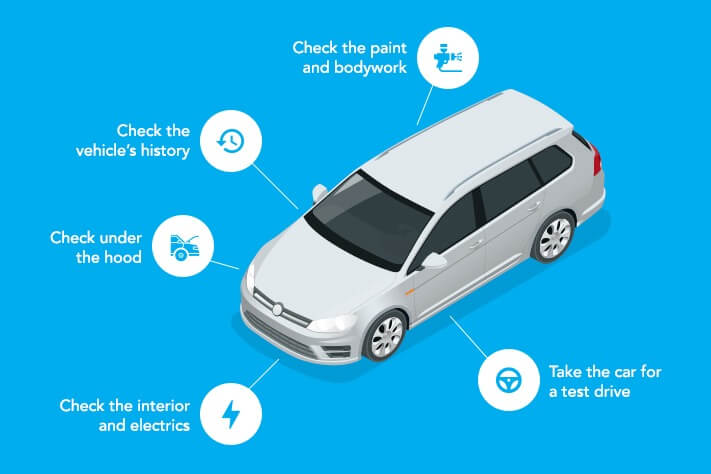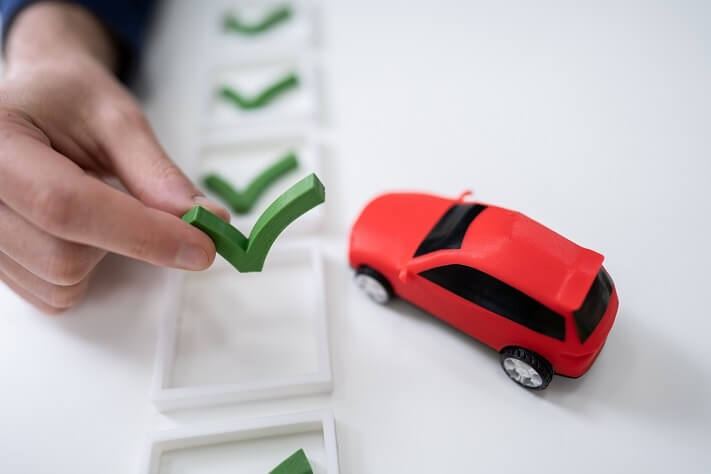Upgrading your vehicle but still tossing up which car to get? Spending money on a used car can be a trying experience if you’re not prepared. Dodgy private salespersons and a saturated used car market set the scene for a rigorous, yet highly rewarding search. With that in mind, here’s your used car buying guide.
Choosing the Right car
In the end, you want to be driving away in a car that meets all your needs, having spent within your budget, but ideally, you’re also chuffed about having chosen the right car for you.
Choosing the right car means taking care of a couple of things.
- Your budget
- Your required features (think about your lifestyle – you might need a 4WD)
- Your taste in cars
Finding a car that ticks these boxes is great. But realistically, being a used car, you’ll also want to check that everything works too.
Used car buying guide checklist
Whether you’re laying down cash or financing, it’s good to be sure you’re making the right choice from a mechanical perspective. While most cars on the used car market are fine, you can get unlucky. That’s why it’s good to have a professional mechanic check the car over before you settle. Here are some things you should check before you sign off:

1. Check the vehicle’s history
Take a look at the vehicle’s service history. Don’t be afraid to really check the details, and if something doesn’t add up – ask questions. Things to look out for are large or abnormal services (may indicate an accident/major structural problem), large gaps between services, and finally, double-check that the service records match the car’s registration and make.
2. Check under the hood
Is everything intact? Are there loose bits or large stains from oil spills? It doesn’t take a professional to notice when things are wrong under the bonnet. Check that the oil levels are full and under the car for signs of leaks. Any signs of damage should be taken into account, but referring on to a professional mechanic is always the smart thing to do.
3. Check the interior and electrics
Get inside and have a feel around. Check the upholstery is intact, and have a play with all the buttons. This is a good time to check that the lights, windscreen wipers, emergency lights all the nitty gritty works. There’s nothing worse than driving away and then realising the sound system is kaput.
4. Check the paint and bodywork
Give the outside of the car a once-over. Look out for areas of rust, or scratches that might turn into more work down the road. Serious rust issues can lead to electrical issues and leaks, steering clear of any dodgy paintwork can be a lifesaver.
5. Take the car for a test drive
Always make sure you take the car for a spin. Try and get a feel for how it handles. You’ll want to be sure it can handle an emergency braking situation, but also you’ll want to make sure it can accelerate without a hassle. If you can, get on a freeway to test the speed. Check the gearbox is fully functional by “feeling” the car when it shifts between speeds. Make sure this is smooth and seamless, as gearbox replacements can run into the thousands of dollars.
Also Read: 10 Things you want to check when buying a used car!
How to drive away with the best deal
Getting the best deal on a used car can sometimes seem like an uphill battle, especially when there’s competition. Ultimately, the car needs to be right for you, and once you’ve established that, you can gauge from the seller how much interest there is and ask if they’d be willing to take your offer. Sometimes it helps to incentivise your offer by offering cash upfront or promise to pick up today. The trick is not to be pressured into a sale by the seller.
Used car finance: What you need to know
It’s rare these days to have cash on hand for a used car. If you need a new car, but don’t want to layout the finds directly, it’s common to look at financing options to move things along. There are plenty of used car financing options on the market, and often dealerships will have their own low-interest schemes if you’re looking at going down that path. Make sure you’re not overstretching yourself financially, and only commit if your repayment plan is easy to manage.
Used car buying guide: what about warranties?
Unlike buying new, where you get a manufacturer warranty (usually up to 5 years), used cars from private sellers don’t come with a warranty attached. Buying from a dealership makes you eligible for a statutory warranty if the car is less than 10 years old, and has travelled fewer than 160,000km. Statutory warranties usually last for 3 months, or 5000km, whichever comes first. You may want to check with your dealership to see whether there are any preconditions around vehicle servicing or adding spare parts. It helps to read the fine print.
Dealership vs Private
Finally, the big question: dealer or private? The fact is that when it comes to the private market, you’re often faced with an overwhelming choice of options, yet very few guarantees on quality. In the end, buying from a private seller is always riskier, as they don’t have the same checks in place as dealerships do. Choosing a dealership when buying used cars Perth is a good idea if you’re planning on using the car for a while and need the assurance that it won’t give up after a year.
Buying used cars Perth
Thinking of buying a used car but unsure where to begin? Get in touch with our team at Perth City Subaru. We’ve got a range of cars up to test drive, and if you’re smart about it, you may even get a shot at buying a used demo car – these are usually low on kilometers, and have all the perks of a brand new car, just without the price-tag.

